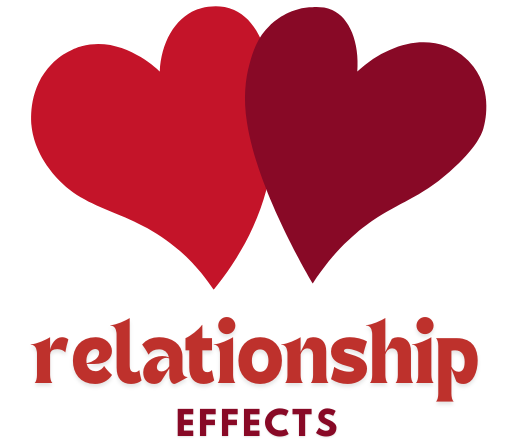Relationships can be challenging – especially when you feel like your partner never acknowledges their mistakes and always shifts the blame onto you. This behavior can lead to frustration, resentment, and a breakdown in communication. Understanding the underlying reasons behind this dynamic can help you approach the situation with empathy and potentially find a path to resolution.

The Fear of Vulnerability
One of the primary reasons why your partner might be unwilling to acknowledge their mistakes is a deep-seated fear of vulnerability. Admitting mistakes requires emotional exposure that can be uncomfortable and threatening to one’s self-esteem. For many people, acknowledging errors feels like admitting personal flaws, which can be a daunting prospect.
When someone is afraid of being vulnerable, they may resort to defensive mechanisms to protect themselves. This often involves shifting blame onto others, in this case, onto you. By doing so, they avoid facing their own shortcomings and the emotional discomfort that comes with it. Unfortunately, this defense mechanism can erode trust and intimacy in the relationship, leaving you feeling unfairly blamed and misunderstood.
Lack of Emotional Intelligence
Emotional intelligence plays a crucial role in how individuals handle conflict and take responsibility for their actions. Emotional intelligence involves self-awareness, self-regulation, empathy, and social skills. When someone lacks these qualities, they may struggle to recognize their own mistakes and understand the impact of their behavior on others.
A partner with low emotional intelligence might not only fail to acknowledge their mistakes but also have difficulty seeing things from your perspective. This lack of empathy can lead to a one-sided dynamic where your feelings and experiences are invalidated. Instead of addressing the root cause of issues, the blame is redirected to you, creating a cycle of unresolved conflicts and increasing tension.
Learned Behavior and Past Experiences
The way people handle mistakes and assign blame is often influenced by their past experiences and learned behaviors. If your partner grew up in an environment where admitting faults was punished or seen as a sign of weakness, they might have internalized the belief that acknowledging mistakes is dangerous. In such cases, blaming others becomes a coping mechanism to avoid potential repercussions.
Additionally, past relationships can shape how someone responds to conflict. If your partner previously experienced situations where admitting mistakes led to negative outcomes, such as rejection or criticism, they might have developed a habit of deflecting blame to protect themselves. Understanding the context of their behavior can provide insights into why they react the way they do and open up opportunities for compassionate dialogue.
Communication Breakdown
Effective communication is the cornerstone of any healthy relationship. When communication breaks down, misunderstandings and misinterpretations can occur, leading to a pattern where one partner consistently feels blamed. If your partner doesn’t feel heard or understood, they might resort to defensive behaviors, including shifting blame, as a way to regain a sense of control.
Moreover, unresolved conflicts can fester and resurface in various ways. If past issues haven’t been properly addressed, they can influence current interactions, causing a partner to project unresolved emotions onto present situations. This projection often takes the form of blaming you for things that may have deeper roots in their own unresolved feelings.
Insecurity and Low Self-Esteem
Insecurity and low self-esteem can also play a significant role in why your partner avoids acknowledging their mistakes. When someone feels inadequate or fears they are not enough, they may go to great lengths to maintain a facade of competence and control. Admitting mistakes can threaten this facade, leading to feelings of shame and self-doubt.
To protect their fragile self-esteem, your partner might deflect blame onto you. This deflection serves as a way to preserve their self-image and avoid confronting their insecurities. While this behavior can temporarily shield them from emotional discomfort, it places an unfair burden on you and undermines the foundation of mutual respect and accountability in the relationship.
Addressing the Issue
Understanding the underlying reasons behind your partner’s behavior is the first step towards addressing the issue. Here are some strategies that can help:
- Open Dialogue: Initiate a calm and non-confrontational conversation about how their behavior affects you. Use “I” statements to express your feelings without sounding accusatory, such as “I feel hurt when I’m blamed for everything.”
- Encourage Self-Reflection: Gently encourage your partner to reflect on their actions and how they contribute to conflicts. This can help them develop greater self-awareness and emotional intelligence.
- Seek Professional Help: Couples therapy or individual counseling can provide a safe space for both partners to explore underlying issues and learn healthier ways to communicate and resolve conflicts.
- Set Boundaries: Establish clear boundaries about acceptable behavior in the relationship. Let your partner know that blaming you for everything is not constructive and emphasize the importance of mutual accountability.
- Practice Patience: Changing deeply ingrained behaviors takes time. Be patient with your partner and acknowledge small steps of progress. Reinforce positive changes with appreciation and support.
Where To Go From Here?
Dealing with a partner who consistently blames you for everything can be incredibly draining and damaging to your self-esteem. It’s important to remember that their behavior is often rooted in deeper issues like fear of vulnerability, lack of emotional intelligence, and past experiences. These insights provide a framework for understanding their actions, but also highlight the importance of addressing these patterns together.
Real change requires effort from both sides, and sometimes the assistance of a professional. The journey towards a healthier relationship involves patience, open communication, and mutual willingness to grow. By addressing the root causes and fostering an environment of empathy and understanding, you can work towards a partnership where accountability and respect are shared values. True partnership means facing challenges together, and it’s through this collaborative effort that relationships can truly thrive.
Ally is editor at Relationship Effects and a keen writer on the topics of love and relationships. When she's not writing about the highs and lows of being in love, you're likely to find her catching up on the latest season of Bridgerton (again), reading, or hanging with her two ragdoll cats.
